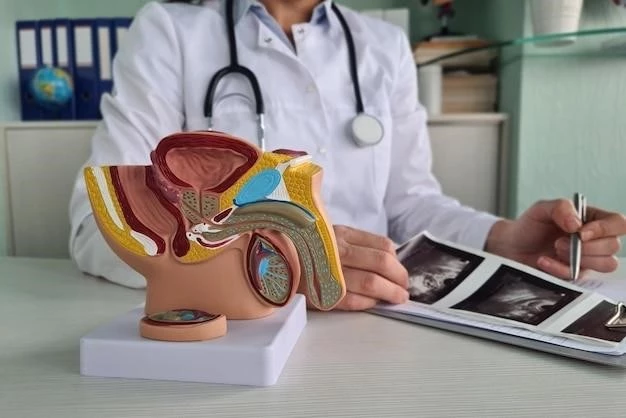Article Plan⁚ Disease ⸺ Urocanase Deficiency
Overview of Urocanase Deficiency
Urocanase deficiency‚ or urocanic aciduria‚ is a rare inherited metabolic disorder characterized by reduced levels of the enzyme urocanase. This enzyme plays a crucial role in breaking down the amino acid histidine. Consequently‚ individuals with urocanase deficiency experience an accumulation of urocanic acid in their urine‚ blood‚ and tissues‚ which can lead to various neurological and skin-related issues.
The diagnosis of urocanase deficiency is typically established by demonstrating increased excretion of precursor metabolites and decreased excretion of metabolites that result from the enzyme’s action. This evidence‚ alongside specific genetic testing‚ helps confirm the presence of the deficiency. Additionally‚ the symptoms and clinical presentation are essential factors in diagnosing this rare disorder.
Individuals affected by urocanase deficiency may exhibit symptoms such as mental retardation‚ urocanic aciduria‚ and possible ataxia. Understanding the genetic inheritance pattern of this disorder‚ being autosomal recessive‚ is crucial for families and healthcare providers to assess the risk of passing on the condition to offspring.
Managing urocanase deficiency involves treatment strategies aimed at alleviating symptoms and preventing complications. It is essential for patients and families to have access to support resources that provide information‚ guidance‚ and emotional assistance. Research and developments in this field continue to contribute to improved understanding and potential therapeutic advancements for urocanase deficiency.
Causes and Genetic Inheritance
Urocanase deficiency‚ also known as urocanic aciduria‚ results from mutations in the UROC1 gene‚ leading to reduced levels of the enzyme urocanase. This enzyme is essential for breaking down the amino acid histidine‚ and its deficiency causes an accumulation of urocanic acid in the body‚ affecting neurological and skin functions. The disorder follows an autosomal recessive inheritance pattern‚ meaning a child must inherit a mutated gene from each parent to develop urocanase deficiency.
Understanding the genetic underpinnings of this disorder is vital for genetic counseling and family planning. Genetic testing can help identify carriers of the mutated gene and assess the risk of passing on urocanase deficiency to future generations. By recognizing the causes and inheritance pattern of urocanase deficiency‚ healthcare providers and families can make informed decisions regarding reproductive choices and early interventions.

Research continues to focus on identifying new genetic variations associated with urocanase deficiency and understanding how these mutations impact enzyme function. By unraveling the genetic complexities of this disorder‚ scientists aim to pave the way for targeted therapies and personalized treatment approaches based on an individual’s unique genetic makeup.
Symptoms and Clinical Presentation
Urocanase deficiency manifests with a range of symptoms affecting both neurological and skin functions. Individuals with this disorder may experience mental retardation‚ behavioral changes‚ hyperactivity‚ seizures‚ and in severe cases‚ ataxia‚ which is a lack of muscle coordination. Skin-related symptoms can include dry skin‚ rashes‚ and increased sensitivity to sunlight due to the accumulation of urocanic acid.
Clinical presentation of urocanase deficiency often includes urocanic aciduria‚ which is the presence of high levels of urocanic acid in urine. This urinary abnormality‚ along with neurological symptoms‚ is key in diagnosing the condition. It is important for healthcare providers to be vigilant in recognizing these symptoms and considering urocanase deficiency as a potential underlying cause‚ especially in individuals presenting with unexplained developmental delays or neurological issues.
Diagnosis of Urocanase Deficiency
Diagnosing urocanase deficiency involves a comprehensive approach that includes analyzing metabolic markers to identify elevated excretion of urocanic acid and compromised activity of the urocanase enzyme. The demonstration of increased levels of precursor metabolites and reduced excretion of specific by-products aids in confirming the presence of this rare disorder.
Additionally‚ genetic testing plays a crucial role in diagnosing urocanase deficiency by identifying mutations in the UROC1 gene responsible for encoding the urocanase enzyme. Genetic analysis provides valuable insights into the underlying genetic cause of the deficiency and helps healthcare providers confirm the diagnosis definitively.
In some cases‚ liver function tests may also be utilized to assess the enzyme activity related to histidine metabolism‚ providing further confirmation of urocanase deficiency. A comprehensive diagnostic process‚ guided by metabolic markers and genetic testing‚ is essential for accurately identifying and confirming the presence of urocanase deficiency in individuals presenting with symptoms suggestive of the disorder.
Treatment Options and Management Strategies

Currently‚ there is no specific cure for urocanase deficiency; management primarily focuses on treating the symptoms and complications associated with the disorder. Individuals diagnosed with urocanase deficiency may benefit from a multidisciplinary approach to care involving medical specialists‚ genetic counselors‚ and support groups.
Treatment strategies for urocanase deficiency often include dietary modifications to manage histidine intake and reduce the production of urocanic acid. In severe cases where neurological symptoms are prominent‚ medications to control seizures or behavioral issues may be prescribed to improve quality of life.
Regular monitoring of metabolic markers and enzyme activities is crucial in assessing the effectiveness of treatment strategies and managing the progression of the disorder. Genetic counseling plays a vital role in educating individuals and families about the inheritance pattern of urocanase deficiency and providing guidance on family planning and risk assessment.
It is essential for patients with urocanase deficiency to have access to appropriate support resources‚ including patient advocacy organizations and healthcare professionals well-versed in managing rare metabolic disorders. By collaborating with a specialized healthcare team and adhering to personalized treatment plans‚ individuals with urocanase deficiency can optimize their care and well-being.
Research and Developments in Urocanase Deficiency
Recent research on urocanase deficiency has focused on elucidating the molecular mechanisms underlying this rare inherited disorder. Scientists have investigated mutations in the UROC1 gene‚ responsible for encoding the urocanase enzyme‚ to understand how these genetic changes impact enzyme function and histidine metabolism.
Exploration into enzyme activity assays and protein expression studies has provided valuable insights into the functional consequences of various mutations associated with urocanase deficiency. By examining how these mutations affect enzyme activity at a molecular level‚ researchers aim to uncover potential therapeutic targets and personalized treatment approaches for individuals affected by this metabolic disorder.
Moreover‚ studies have explored the clinical manifestations of urocanase deficiency‚ shedding light on the varied neurological and skin-related symptoms observed in affected individuals. This comprehensive understanding of the symptomatology associated with the deficiency informs healthcare providers in diagnosing and managing patients effectively.
Ongoing research efforts continue to investigate the diagnostic markers‚ treatment strategies‚ and long-term outcomes for individuals with urocanase deficiency. By advancing our knowledge of the genetic and biochemical basis of this disorder‚ researchers strive to enhance clinical interventions and improve the quality of life for individuals living with urocanase deficiency.
Support Resources for Patients and Families
For individuals and families affected by urocanase deficiency‚ accessing support resources can greatly assist in navigating the challenges associated with this rare metabolic disorder. Organizations such as the National Organization for Rare Disorders (NORD) offer valuable information and assistance related to urocanic aciduria‚ including details on symptoms‚ diagnosis‚ and treatment options;
Genetic counseling services play a crucial role in providing guidance on the inheritance pattern of urocanase deficiency and assisting families in understanding the genetic implications for future generations. Counseling sessions can help individuals make informed decisions about family planning and assess the risk of passing on the disorder.
Additionally‚ patient advocacy groups and online communities dedicated to rare diseases can serve as valuable support systems for those living with urocanase deficiency. Connecting with others facing similar challenges can offer emotional support‚ shared experiences‚ and practical tips for managing the condition on a day-to-day basis.
Healthcare providers knowledgeable about urocanase deficiency can also serve as important resources for patients and families‚ offering specialized care and treatment guidance tailored to individual needs. By leveraging these support resources‚ individuals affected by urocanase deficiency can enhance their quality of life‚ stay informed about advancements in research‚ and access the assistance they need to manage the disorder effectively.
Conclusion and Future Outlook
In conclusion‚ urocanase deficiency‚ or urocanic aciduria‚ presents a rare metabolic challenge characterized by enzyme insufficiency affecting histidine breakdown. The current focus lies in enhancing diagnostic accuracy through metabolic markers and genetic testing‚ enabling prompt identification and management of affected individuals.
Looking ahead‚ future research endeavors aim to unravel the intricate molecular mechanisms underlying urocanase deficiency‚ with a spotlight on potential therapeutic targets and personalized treatment modalities. By delving deeper into genetic variations and biochemical pathways‚ scientists strive to pave the way for innovative interventions and improved outcomes for individuals battling this metabolic disorder.
It is imperative to emphasize the crucial role of support resources‚ genetic counseling‚ and interdisciplinary care in assisting patients and families in coping with the challenges posed by urocanase deficiency. By fostering collaboration between healthcare providers‚ advocacy groups‚ and affected individuals‚ the future outlook for managing urocanase deficiency holds promise for enhanced quality of life and well-being.
